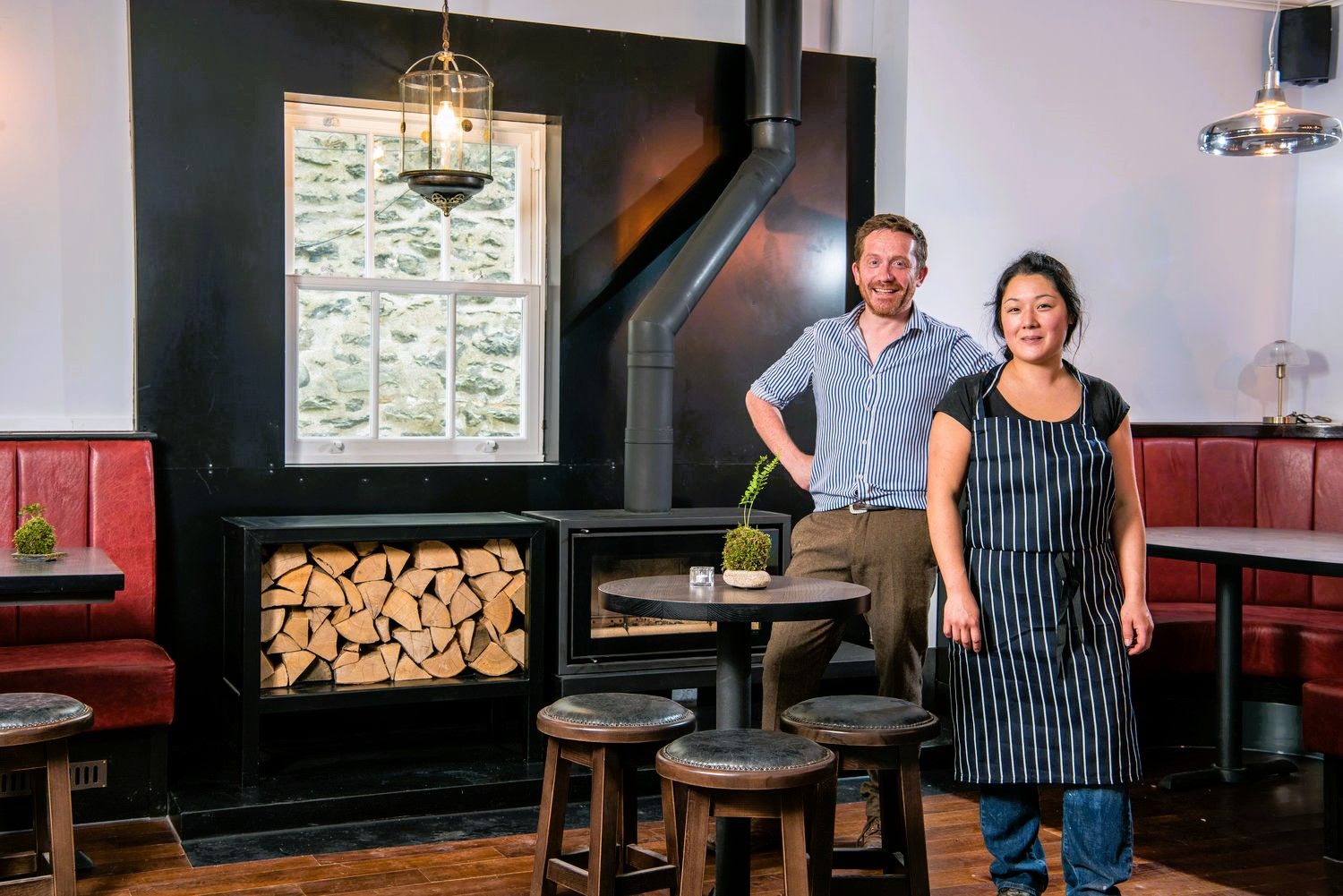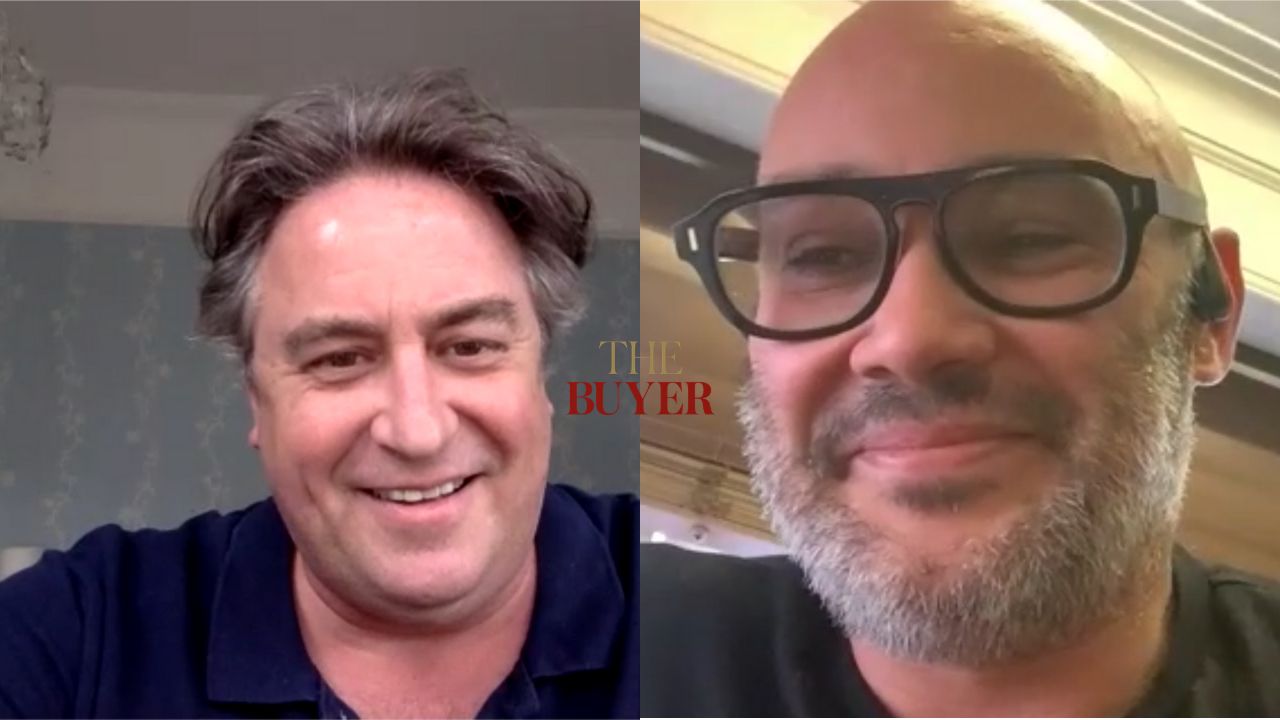“I’m not trained in wine in any way at all,” says Black Bull co-owner, James Radcliffe, almost apologetically. ”I have not done a WSET. I am self-taught. The wine list is personal to me. It’s a labour of love. To see it recognised with lists put together by fully trained sommeliers is a great feeling.”
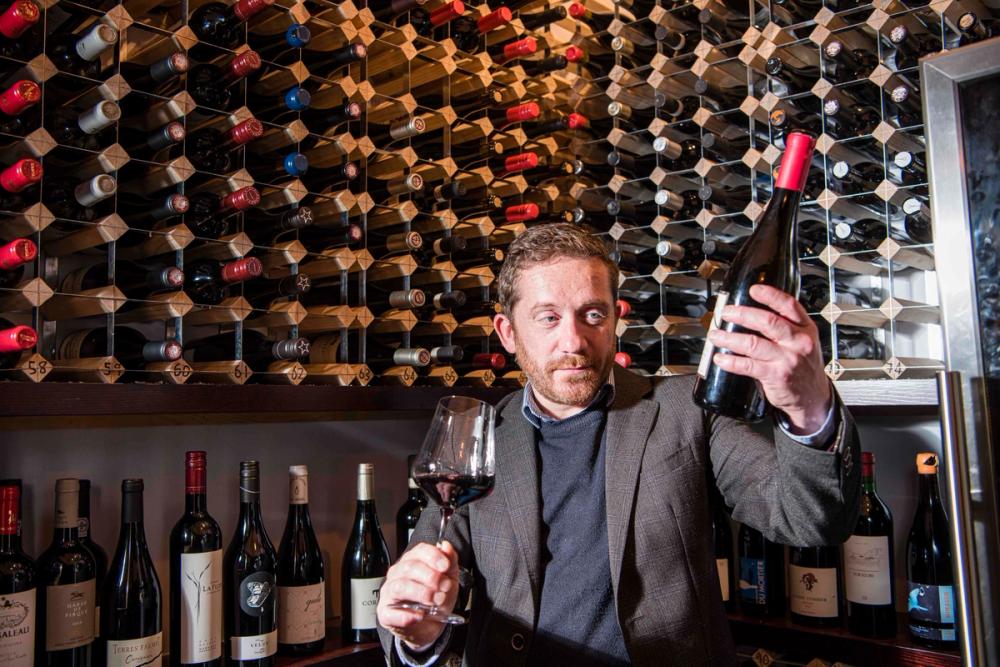
James Ratcliffe says he wants to source and sell wines that mean something to him and the food and not because they are the type of wines a classically trained wine buyer would list
That’s how Ratcliffe introduces his own approach to wine and what has made The Black Bull such a destination both for food - and wine lovers.
The packed wine list (download here) is an eclectic mix of natural, organic, biodynamic wines from small producers along with cellar wines and the ‘comfort’ classics.
A selection of wines that the AA Hotel Services’ hotel and restaurant inspector described as “covering a superb depth and choice”. With ever changing wines by the glass, “the list has the ability to inspire customers to make adventurous choices,” they said.
The AA are clearly big fans as it has awarded the Black Bull Two AA Red Rosettes for Culinary Excellence, the AA Breakfast Award, the AA five-star Inn Award, and now a Notable Wine List Award too.
Ratcliffe has always been obsessed with food. He grew up on a chicken farm, close to Sedbergh. He studied Sociology and Philosophy at Manchester University, where he spent his student days working in bars across Manchester. It was whilst working at The Mark Addy restaurant that he met his partner Nina Matsunaga (Great British Menu 2024, standing for, the North West).
He attended a wine tasting and “was the only one who could nail the lychee flavour in a Gewurztraminer, something I had picked up from Thai food,” he says. “I knew then I had a good nose. That’s when I caught the bug.”
Ratcliffe began hoarding so many books on wine, thirsty to learn about the history and wine regions and by proxy, learning the technicalities of winemaking.
The couple opened a cafe called The Three Hares, in Sedbergh, in 2014 and The Black Bull came later in 2018.
Starting out
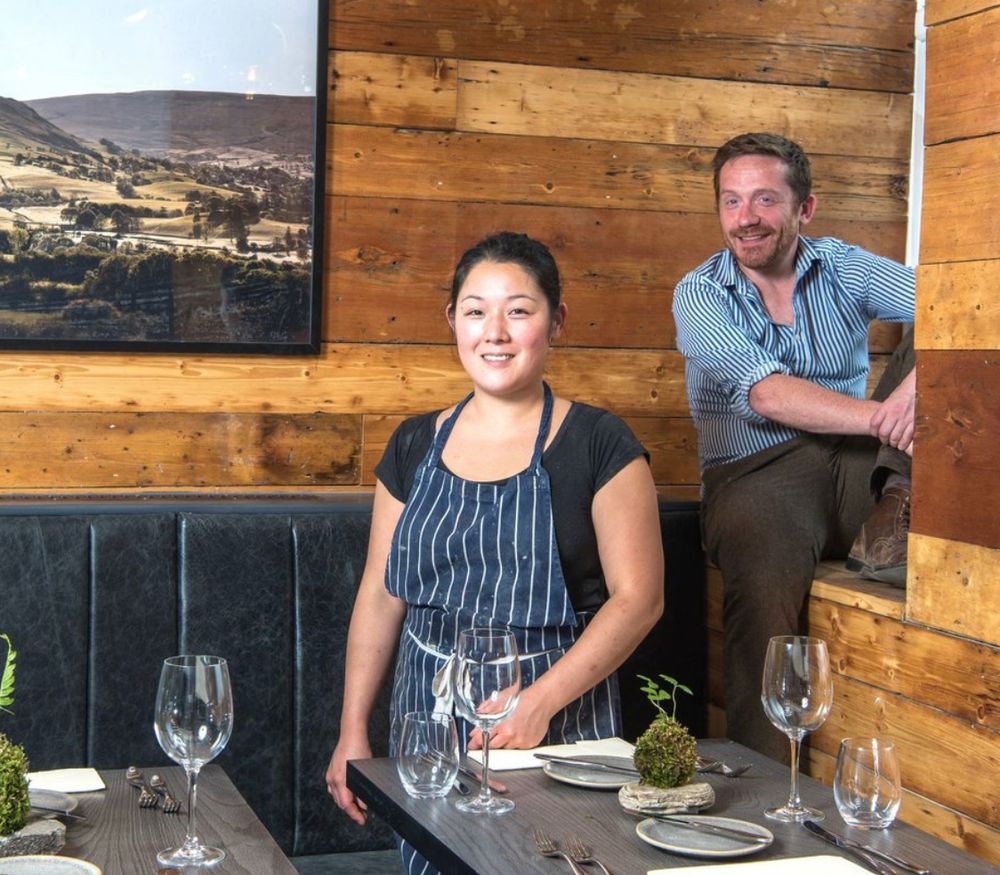
Black Bull owners and husband and wife James Ratcliffe and Nina Matsunaga
“It was at the Three Hares, where I curated my first wine list, I met some local wine suppliers and was told that I had to have a New Zealand Sauvignon Blanc and that I must have the ‘standard’ grapes on the list. Where is the Malbec they would cry?”
The obvious place to start for Ratcliffe was with Germanic and Austrian wines, a nod to Matsunaga’s German upbringing.
“I think you can get blinkered with what you are told is right and what's wrong, when it comes to wine education,” says Ratcliffe.
“I find that a lot of people who are knowledgeable about wine won’t try a natural wine, because they presume it's a fad. Wine education is formulaic, and natural wine does not fit into that system.”
The gatekeepers of the wine industry are still stuffy about the way they approach wine education, but it is “slowly changing,” he says. The younger generation are leading the way with women at the forefront of some of that change.
“They are looking for wines packed with flavour, not just prestige. The traditional notions of what wine should be and taste like are evolving.
“Look at L’Enclume, and Moor Hall? Their list includes a few natural wines hidden away for those in the know or are just part of the list because the sommelier loves them.
He says that some of the new-wave producers are farming on small plots, not family estates. Their vibe is really projected through the wine. Unfussy, not clinically processed and packed with flavour.
Ratcliffe acknowledges that he must provide conventional wines as people want to have that ‘comfort.’
The Italian Fattoria di Sammontana, Chianti Sanfirenze, on the list is from an organic producer. It is something people recognise and that’s a tick, tick, situation, he explains.
Creating a gastropub
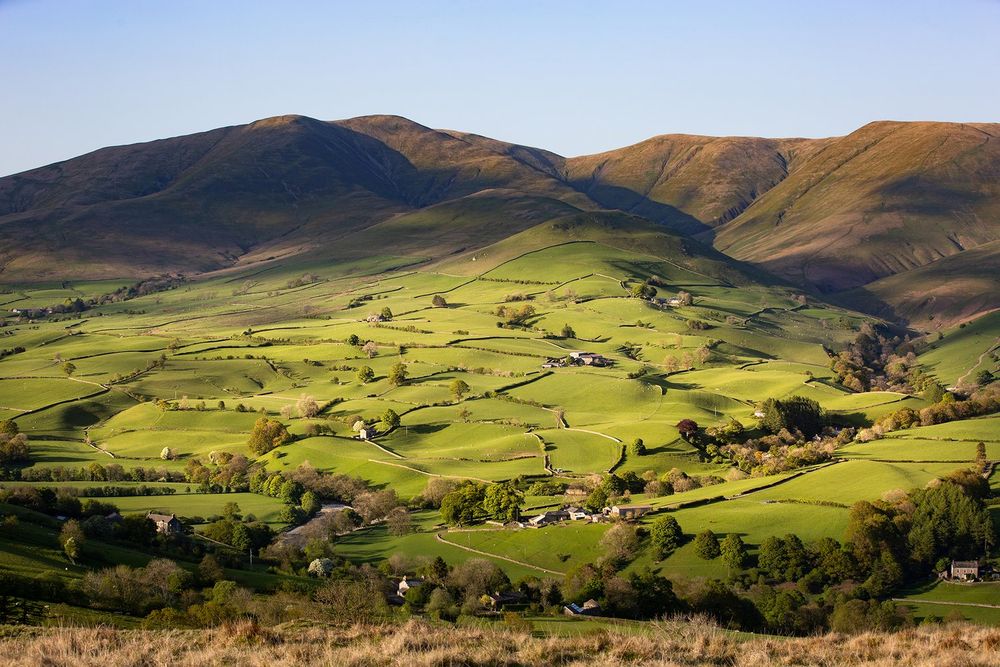
The Black Bull has joined the fine dining and hospitality scene in the Lake District
Sedbergh, approached from Junction 37 off the M6, Is England’s official book town. It’s also home to Sedbergh private boarding school that dominates the town.
Fast forward to 2018, the couple bought the Black Bull pub and set about its transformation into a gastropub.
It now has 37 wines by the glass: “I think it’s important to give a good balance of what our wine list represents,” says Ratcliffe.
“We sell a lot of our Japanese orange wine by the glass and, if I had it on only by the bottle, I would sell hardly any.”
He confirms that people are much more inclined to experiment with a glass rather than a bottle. “With a list like ours they need that choice, hopefully leading them to order a bottle next time.”
Parents with children boarding at the school always ask for a ‘Barolo’ or ‘Chablis’ and are “quite specific” about that. They want known labels. “It’s a battle to try and ensure a balance of sourcing conventional wines that follow a certain ethos,” says Ratcliffe.
“I call them the ‘comfort’ classics much like the pie night on the A La Carte menu.”
Black Bull attracts a mix of clientele with hikers, cyclists and is an ideal stop over for those travelling from London to Scotland. Other visitors arrive from Manchester, Liverpool, and Leeds for a weekend break.
It was at the Black Bull that Ratcliffe really started to understand that wine production is farming. Matsunaga’s cooking is influenced by her Japanese and German roots, local produce, sustainability and, she will only serve meat from animals reared less than 20 miles away with other produce from the ‘neck of Britain’. (Yorkshire, Cumbria, Lancashire, Northumberland, Durham, Derbyshire, and Cheshire). Ratcliffe forages, making for an exciting hyper-local approach.
Matsunaga is also a book worm with books spilling out of cupboards on anything and everything to do with the environment and sustainability, regenerative farming, fermented food, and non-native invasive species as ingredients.
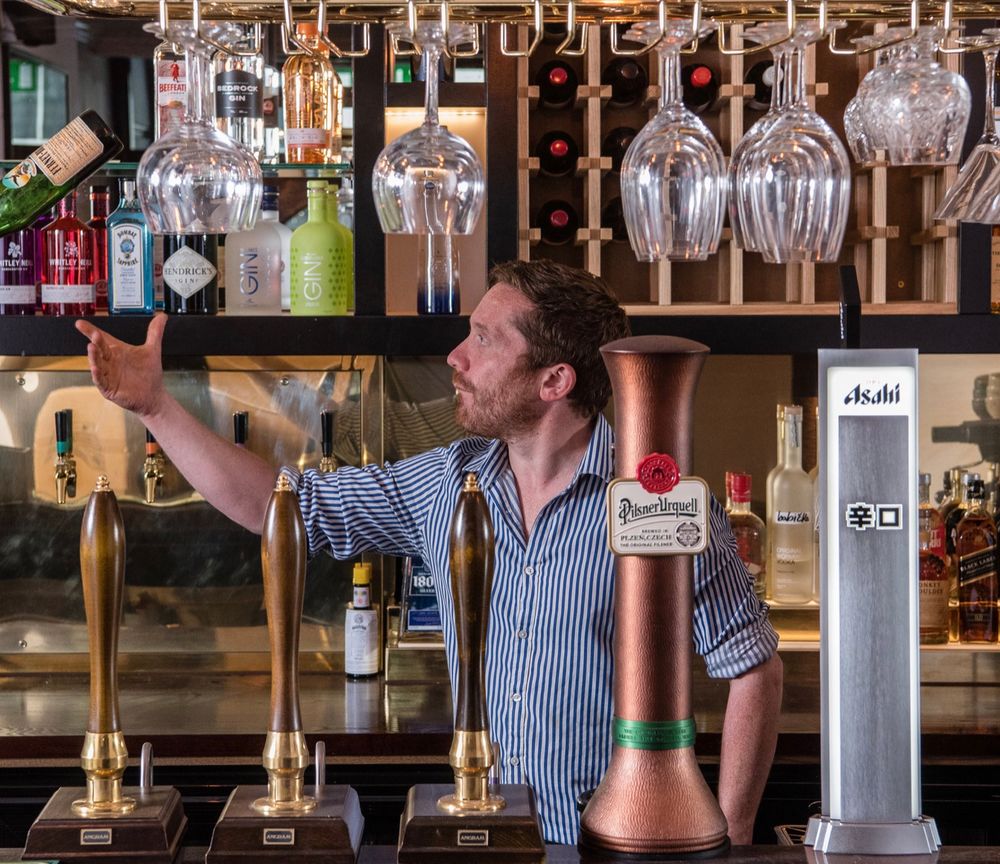
“There's no point in doing all this sustainable work in the kitchen and then put Coca-Cola and wines on the menu that are clearly not sustainable. The same thought needs to go into everything we do.”
The philosophies led Ratcliffe into discovering natural, organic, and sustainable wines with a focus on ‘new style’ old world wines along with wines with skin contact and biodynamic.
Promoting natural wine
He fell upon a wine supplier who introduced him to natural wines: “I tried a couple of the wines, and they were all cloudy and there were bits floating in them. All rather messy. It wasn't until I sat down and really tasted them. That’s when I really started to grow an interest.”
He adds: “There are a lot of flavours in natural wine that education teaches is a fault; the bitter flavours, the sour, young fruit, and the green notes.”
He acknowledges that there is a big quality divide: “There's a lot of crap out there. You must sift through it. That is the same for all wine. There are some suppliers/distributors who just put a nice label on things and send it out.
“It's the same as the beer movement, isn't it? Years ago, beer had to be clear and now it's become cloudy, and people are quite accepting of it now. It will go the same way with wine. But it's just not there yet.
“I find most conventional wine boring. It could be a classic Barolo or an Amarone, lovely wines but I can’t drink them anymore. I find them heavy.”
Staff training
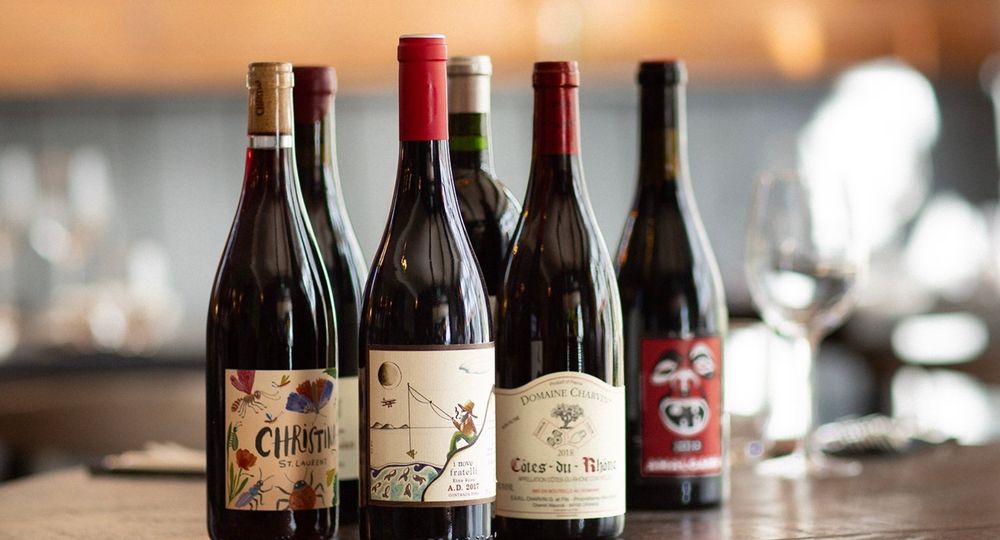
“I know who’s been on a shift by the certain obscure wines being sold more often than usual.” James Ratcliffe on staff training
His staff have got to have the confidence to put down a glass of wine that’s cloudy.
”If somebody says, ‘listen, this wine is cloudy,’ they need to feel able to say ‘no, that's how the wine should be and then put the guest at ease with a warm friendly unstuffy service,” he says.
Ratcliffe has stopped changing the wines by the glass list on a weekly basis because consistency helps with training the team.
He says the issue with taste is that the eyes decide first and that affects the taste. People instantly presume it’s not right.
He says that the team keep tasting the wines but not in a formal way. This approach gets them invested and helps them to learn more about the wines, he says.
“I know who’s been on a shift by the certain obscure wines being sold more often than usual.”
Tasting menu
It takes us a long time to put the food and wine matching together, “but I wouldn’t change it for the world.”
He blames Matsunaga for the difficulty in matching wines to food: “She always manages to throw a spanner in the works.”
Her food is eclectic, taking influences from German and Japanese cooking, alongside the rest of Europe and Asia. A beef fillet with a spicy Nam Prik Noon Thai sauce is not easy to match.
“My current favourite is Plum Sake with her Matcha and apple dessert. It’s infused with whisky and has almond notes that work well.”
The Black Bull beverage sales are dominated by wine, but future tasting menus will experiment with soft drinks or a match with beers.
“Wine pairings can often be overly complicated. Light French reds match with a simple cheese and meat board or an organic Aussie Cabernet Sauvignon with our beef and ale pie.”
One of the best pairings he remembers is at Lake Road Kitchen, Ambleside. A dry Furmint with a mushroom dish. “It took the dish and wine to the next level.”
Future plans
The Black Bull indoors will remain fine dining and an a La carte menu with a pie on it. But with half an acre to play with, they have a 200-cover beer garden and room for a second restaurant outside. They plan to serve casual, small plates, pizza, grill, and BBQ. This would satisfy the variety of visitors.
Black Bull’s winter tasting menu includes fermented foods and non-native invasive species. Think Native Oysters, Grey Squirrel, Sea Urchin & Trout Roe matched with Black Chalk Brut NV, Hampshire, England or Muntjac & Tonnato paired with Cascina Zerbetta, Barbera, Piemonte, Italy or Sea Buckthorn with Bordeaux Fleur d’Sauternes.
James Ratcliffe: on the spot
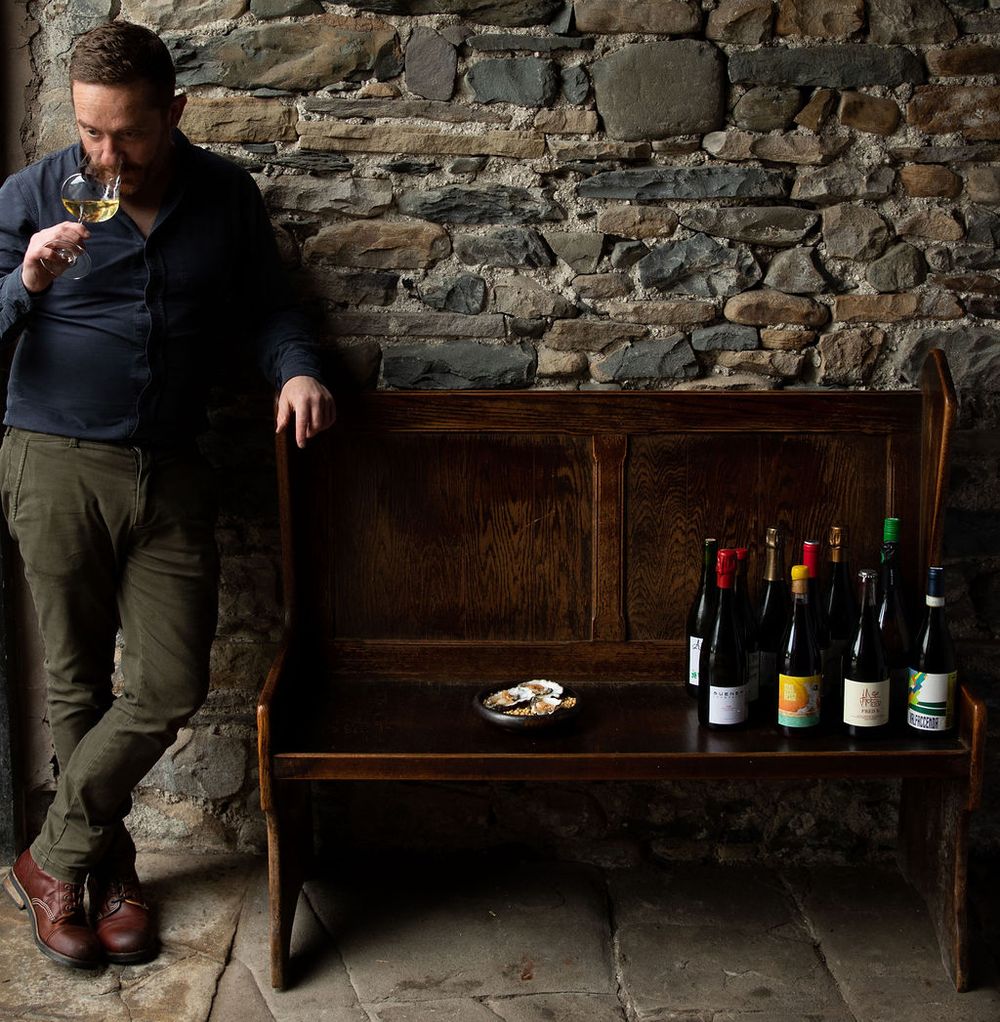
Which producer do you admire the most?
Strekov 1075. All the wines from Zsolt Sütó have been a delight. There’s something so unique about them, but you can’t just pinpoint what it is.
Highlights include: Veltín, Grüner Veltliner and the Blauer Portugeiseur. The field blend ‘Fred’ series are reasonably priced and accessible wines. All are created on 12 hectares of sustainable, low yield but high-quality vines.
Most underrated wine producing region or countries?
Hungary, Slovenia and Slovakia. They are alive. These countries have been producing wines for thousands of years, yet we barely know anything about them. History hasn’t been kind; disease, war, but also the introduction of mass production. State-run wineries sent out thousands of litres of cheap wine around the world destroying any earlier reputation these nations might have had.
Exciting producers coming from these countries include Bott Frigyes, Slobodne, Szóló and Strekov 1075.
Other countries to watch are Romania and Serbia.
Three restaurant wine lists you admire.
- Restaurant Sune.
- Trivet.
- Where the Light Gets In
The best value wines on the current wine list?
We have quality wines in the £40 to £60 bracket. Some are a real bargain.
Whites: Szóló, Frivolo Virgo Dry Furmint from Tokaj, Hungary.
Reds: Ar. Pe. Pe’s Rosso di Valtellina which is a wonderful way to enjoy pure Nebbiolo outside of Barolo and without the price tag.
Bubbles: Beautiful wines from Quarticello, Italy.
Orange: Something from Oskar Maure, Serbia.
We also have some ‘unicorn’ wines on the wine list, that you won’t find anywhere else, and they aren’t stupid prices. There is no need to spend a fortune to get a good wine.
Three wines from the list that really excite you.
- Strekov 1075, Veltin Grüner Veltliner 2018, Strekov, Slovakia
- Deboubertin, Etolie Pineau d’Aunis 2020, Loire, France
- Milan Nesterac, Umani Traminer, Moravia, Czech Republic
* You can find out more about The Black Bull at its website here.
